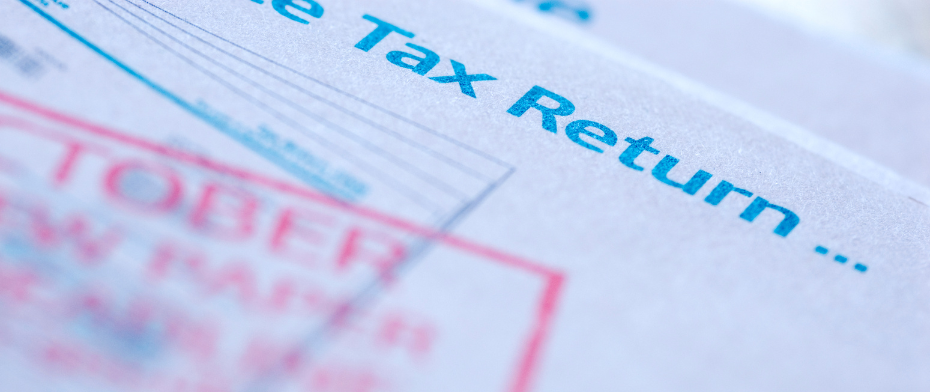Do I need to register for Self-Assessment if I’m self-employed?
- TBA

- Dec 20, 2024
- 4 min read
Updated: May 29, 2025
Living and working in the UK means you have to deal with HM Revenue and Customs (HMRC). One crucial method of communication is the Self-Assessment Tax Return which HMRC uses to collect income tax.
Generally, if you are a full-time employee, your taxes are automatically deducted from your salary and pensions under the PAYE system. However, if your total taxable income exceeds a specified amount or if you have additional untaxed income, you must declare it on your tax return.
Today, we provide a guide detailing who must register for a self-assessment tax return, deadlines, and associated penalties.
Who needs to register for Self-Assessment?
You must submit a tax return if any of the following applies to the previous tax year (April 6 to April 5):
You are self-employed and your income exceeds £1,000 (before deducting eligible expenses).
You are a partner in a business partnership.
Your total taxable income exceeds £150,000.
You need to pay Capital Gains Tax when selling or disposing of valuable items, which requires a tax return.
You need to pay high-income child benefit charges.
If you have any other untaxed income exceeding £2,500, you may also need to submit a tax return, such as:
Income from renting properties.
Tips and commissions.
Interest from savings, investments, and dividends.
Foreign income.
Other reasons you may need to register and fill out a tax return:
To claim certain income tax deductions.
To prove you are self-employed, such as for tax-free child benefits or maternity pay.
To pay voluntary National Insurance contributions.

Is there a deadline?
If you have never submitted a self-assessment return before, you must register by October 5 to notify HMRC.
Upon registration, you will receive a Unique Taxpayer Reference (UTR) number, which allows you to activate your online services account.
After registering, you must submit your self-assessment tax return by the deadline:
For online submissions: The deadline is January 31 following the tax year. For the 2024 to 2025 tax year, you must submit by January 31, 2025.
For paper submissions: Although most people submit online, HMRC still accepts paper forms. You can request a paper self-assessment form (SA100) by calling HMRC. The deadline for paper forms is October 31 (or January 31 for pension scheme trustees or non-resident companies). For the 2024-2025 tax year, submit paper returns by midnight on October 31, 2024.
The mailing address for paper forms is:
Self-Assessment HM Revenue and Customs BX9 1AS United Kingdom
After submitting your paper return, you can check when you will receive a response from HMRC.
If you need to submit an SA100 tax return for the 2021 to 2022 tax year or earlier, you’ll need to obtain the form from the National Archives.
Are there penalties for not registering or submitting my tax return?
If you miss the deadline for submitting or paying taxes, you will incur penalties. A £100 penalty applies if your tax return is late by three months.
Additional delays or late payments result in more fines and interest charges. You can appeal penalties if you have a reasonable explanation.

How to Change Your Self-Assessment Tax Return?
You can change your return after submission if you made an error. Your tax bill will update automatically based on your amendments.
You can also correct your tax return within 12 months of the self-assessment deadline either online or by sending a new paper form.
For example, for the 2022 to 2023 tax year, you typically need to make changes by January 31, 2025. If you miss this deadline or need to amend previous tax years, you must write to HMRC. Note that you must wait three days (72 hours) after submission before updating your return.
Here’s how to do it:
Log in to your account.
Select “S
elf-Assessment Account” from “Your Tax Account.”
Choose ‘More Self-Assessment Details.’
Select ‘Overview’ from the left menu.
Choose ‘Tax Return Options.’
Select the tax year you want to amend.
Access the tax return, make corrections, and resubmit.
If modifying a paper form, call HMRC for the SA100 form.
Download all other forms and supplementary pages. Then, send the corrected pages to the self-assessment address, marking each page as “Amendment” and including your name and UTR.
If you can’t find the address, send your corrections to:
Self-Assessment HM Revenue and Customs BX9 1AS
If you need to declare foreign income, the process differs, and you should consult a professional advisor.

What if I no longer need to file?
In some cases, you might no longer need to complete a self-assessment tax return for various reasons, such as:
No longer renting properties.
No longer receiving high-income child benefits.
Your income falls below the £150,000 threshold.
You are no longer self-employed.
If you believe you no longer need to submit a return, inform HMRC immediately. If HMRC agrees, they will send a letter confirming that you do not need to file. If they do not agree before the January 31 self-assessment deadline, you may face penalties.
If you are no longer self-employed, you must notify HMRC that you have ceased self-employment. Even if you inform them your self-employment has ended, they may still require you to submit returns for future years. If you have verified that you no longer need to submit a tax return, you should inform HMRC.
You can notify HMRC through an online form, their digital assistant service, or directly by phone or mail. Regardless of the method, provide your National Insurance number and UTR for identification.
Some advice from TB Accountants
Whether you are a newcomer or experienced in taxation matters, registering and filling out a self-assessment tax return can be complex. We recommend preparing in advance and maintaining good record-keeping habits.
If you’re confused, especially with diverse income sources, consulting a tax expert or hiring one to assist with your forms can alleviate stress.
For individuals and businesses looking for UK taxation services, use our contact form to get in touch for more information.
Get in touch with us at info@tbgroupuk.com or for a free one-to-one consultation.

